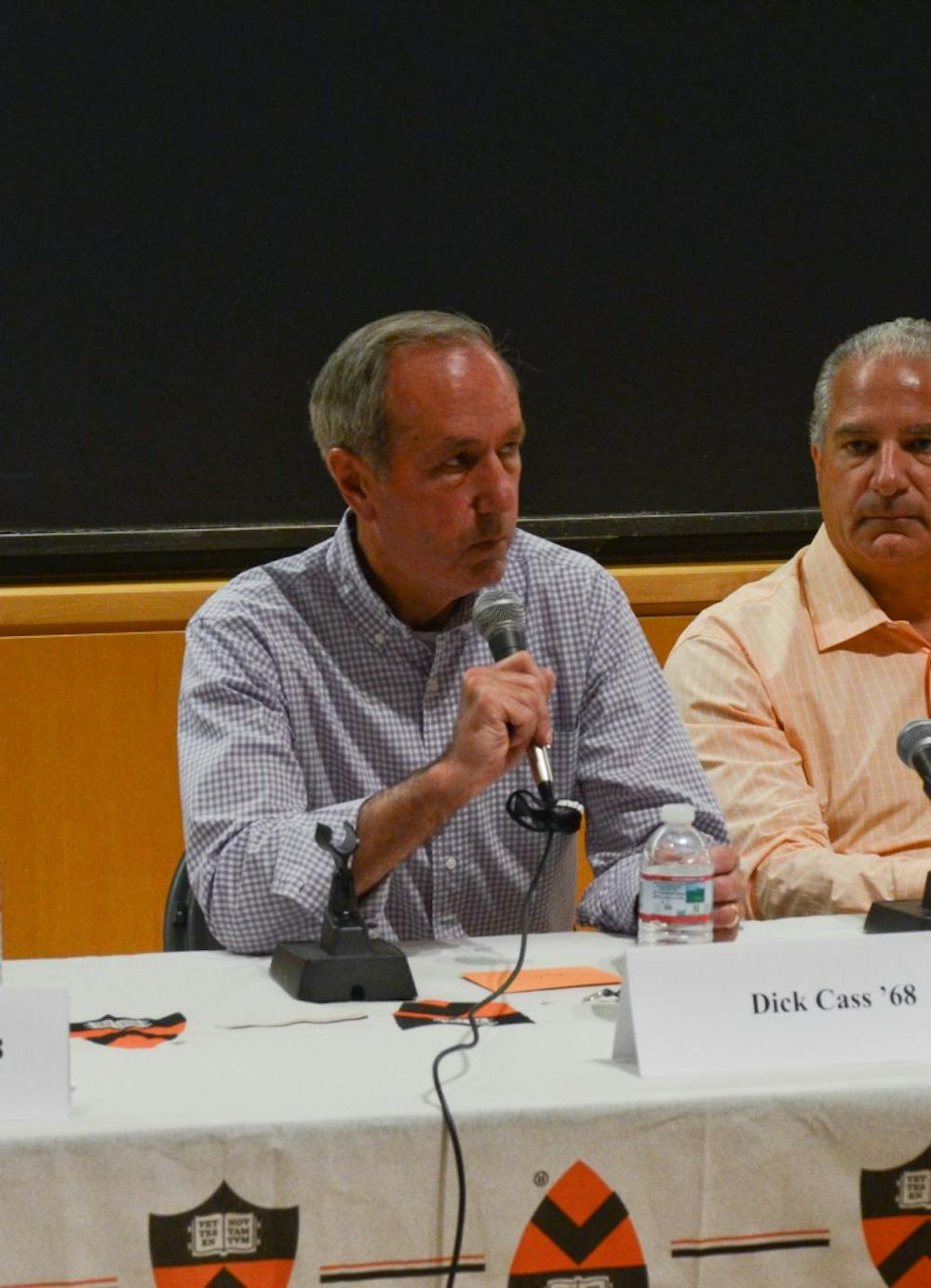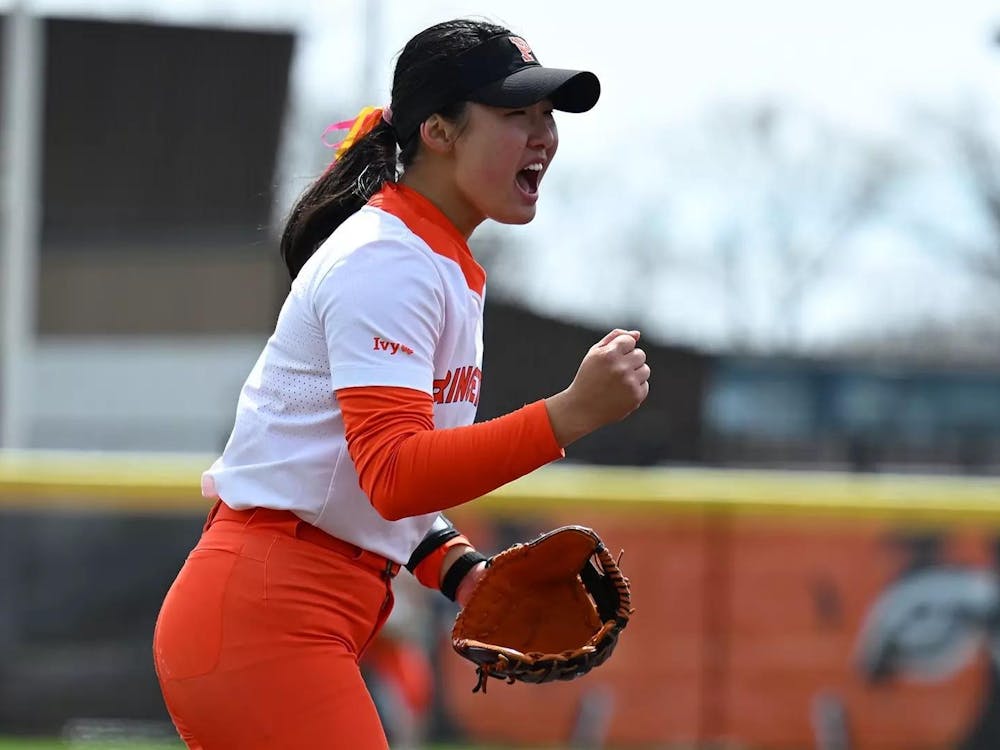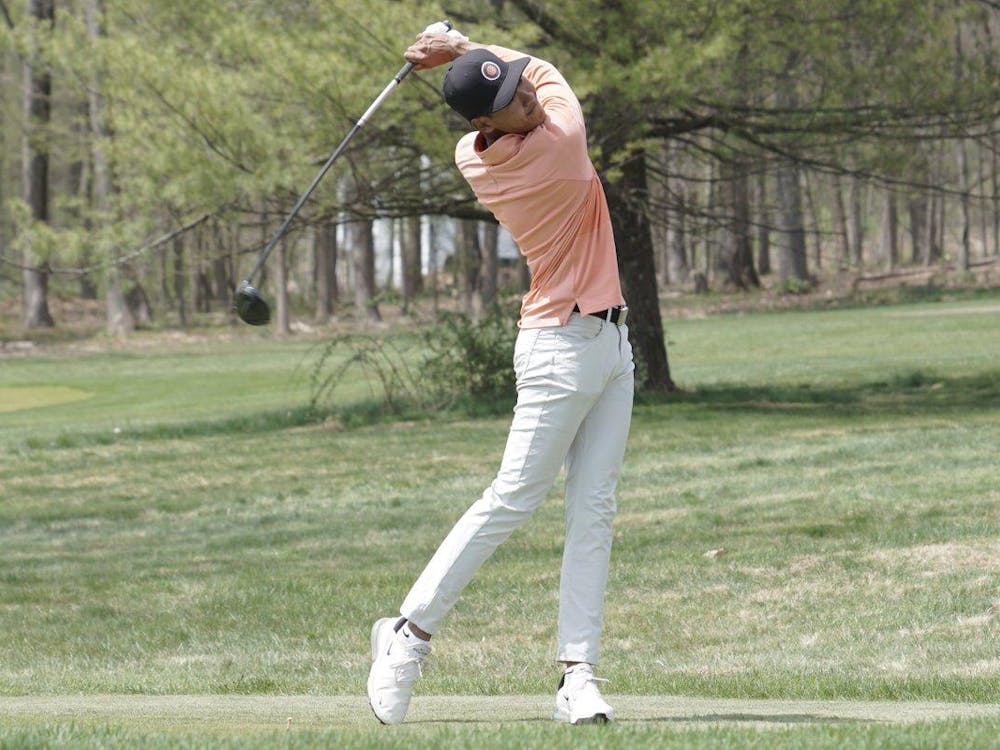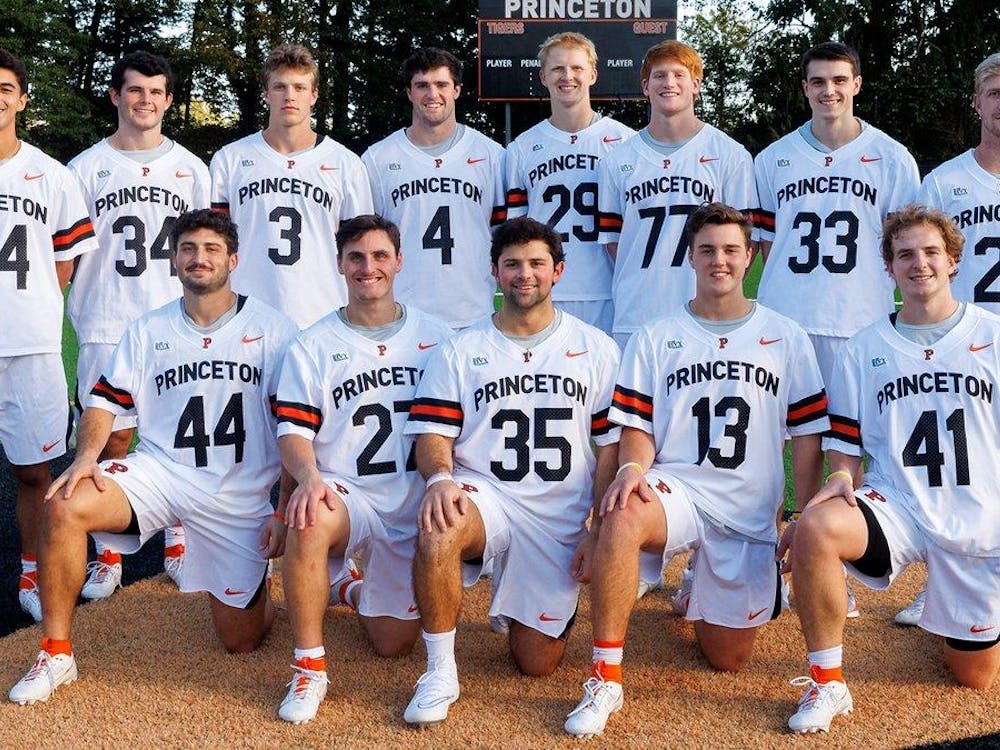 Dick Cass ’68 is president of the Baltimore Ravens, the reigning Super Bowl champions. Before taking the job in 2004, he worked as a lawyer, facilitating the sales of the Washington Redskins, the Dallas Cowboys and the Ravens to their current owners and advising the NFL and team owners on a number of legal issues. While at Princeton, he played rugby for two years and was a member of Cap & Gown Club. He came back to the Orange Bubble for Reunions to appear on an alumni-faculty panel called "Sports: The Inside Story"on Fridaymorning. After a long discussion of college athletics — and after shaking hands with a Cleveland native who said he had finally forgiven the Ravens for relocating to Baltimore — Cass took a few minutes to talk to The Daily Princetonian:
Dick Cass ’68 is president of the Baltimore Ravens, the reigning Super Bowl champions. Before taking the job in 2004, he worked as a lawyer, facilitating the sales of the Washington Redskins, the Dallas Cowboys and the Ravens to their current owners and advising the NFL and team owners on a number of legal issues. While at Princeton, he played rugby for two years and was a member of Cap & Gown Club. He came back to the Orange Bubble for Reunions to appear on an alumni-faculty panel called "Sports: The Inside Story"on Fridaymorning. After a long discussion of college athletics — and after shaking hands with a Cleveland native who said he had finally forgiven the Ravens for relocating to Baltimore — Cass took a few minutes to talk to The Daily Princetonian:
The Daily Princetonian:First of all, a belated congratulations on winning the Super Bowl. Can you describe how that came together and how it felt to win?
Dick Cass ’68:It was incredible. I think people don’t understand how hard it is to win a game in the NFL. To win a division and go on and win four postseason games is a remarkable accomplishment, and very difficult. Our coaches and players did a fabulous job, and we had some luck.
DP: Where do the Ravens go from here?
DC:We lost a lot of good players to free agency and retirement, but I think we’ve reloaded and I like where we are right now. We’re expecting to have a good year.
DP:What’s the most rewarding part of running the franchise?
DC:To see the impact — the positive impact — on the city of Baltimore. When we won the Super Bowl, I was surprised about the extent of the feelings and the emotions that captured the city. We had a rally at the stadium on theTuesdayafter the Super Bowl and our capacity is 71,000. We had over 80,000 people in the stadium. People waited hours to come into the stadium. We had a parade through the city with a couple hundred thousand people. Just the outpouring of support and excitement was remarkable. It just shows the power of sport, the power of a successful team to bring a city together. It cuts across socioeconomic ground, it cuts across race. It’s really great to see.
DP:You’re known as one of the most involved presidents in the league. How can you keep up with all the moving parts of an NFL franchise?
DC:It’s really not that hard to do. You come to work every day and you do your thing. It’s not a big business. Not counting the players, we only have 150 full-time employees, so it’s pretty small. So you know everybody — I know everybody personally — and compared to other people, other businesses that they run are much, much bigger, and it’s relatively straightforward and easy.
DP:I don’t know if there is such a thing, but what is a typical day at the office for you?
DC:Well it’s always a combination of football and business issues. During the season, you’re working seven days a week, but one of those days is the game. It’s work in the sense that when we’re at home there are so many moving parts. [We have] 71,000 fans to worry about getting in and out of the stadium and enjoying the game experience, but you also have another probably 4,000 people that day working directly for the Ravens, so it’s just a lot of moving parts. I really prefer the away games, just because that’s a different experience. You get on a plane together as a teamon Saturday, you fly to the city, have some meetings, get up early the next day, get to the stadium, have the game, get back on the plane and go home. It’s much less involved in some ways for me than being at home. At home, you worry about everything that’s going on in the stadium. But there is no typical day. Sometimes you have meetings in the city, sometimes at the stadium. My office is at our practice facility.
DP:Who are some of the players whom you’ve gotten closest to—past or present?

DC:It takes a couple of years for me to get to know the players, because I don’t coach them. Over time I tend to get to know the players. I get to know them a little bit in their first year, but I get to know them better in their second year and I really get know them by their third year. Obviously I know Ed Reed and Ray Lewis, Joe Flacco, guys like that who’ve been with us for a while. Some of the younger guys you just get to know from being in the same place at the same time in the building and striking up a conversation ... I get to know them through charitable endeavors, too … [linebacker] Jameel McClain is someone I’ve gotten to know just because we’ve done some events together—he’s been on the team a while, and he’s very outgoing. [Wide receiver] Torrey Smith is another guy who’s very outgoing. He’s very self-confident, and feels comfortable talking to people. Others are just quiet and laid-back. There’s such a tremendous difference in age that it’s not natural for them to know me, really.
DP:There’s been a lot of talk recently about players speaking out about social issues — I’m thinking specifically of [former Ravens linebacker] Brendon Ayanbadejo, a vocal supporter of marriage equality. Do you encourage people to speak their minds about things like that?
DC:We don’t encourage it or discourage it. It’s really up to the individual player. We make it easier for them if they want to be a spokesperson. When a new player comes to the Ravens, our community relations department will interview them and figure out how much they want to be involved in the community, what their interests are. And then we make it easier for them to pursue those interests in the community. Brendon, when he came to the Ravens … he always wanted to be involved in the community. So even before this past year when the Marriage Equality Act in Maryland was a big political issue, he was very active in a lot of things. So it’s natural for him to take a leading role. He got a lot of publicity, spoke out well, was effective, I think, in his leadership, and I thought it reflected well on the team, actually.
DP:What do you think is the biggest problem facing the NFL right now?
DC:I think health and safety issues are probably the biggest concern at least that I personally have. We worry about head injuries. The phrase we’re using is “taking the head out of the game.” We’re trying to do that by changing rules, increased emphasis on making sure that we identify a blow to the head that might cause an injury and don’t leave it up to the player. We’ve got a lot of different doctors now watching that, and they’re well-trained to identify potential head injuries. And we’ve developed protocols to make sure a player does not get back on the field before he’s ready to be back on the field. And then we’ve changed the rules of football, and I think we’ll continue to do that. To me, the health and safety of the players — it’s not just head injuries, it’s all health and safety issues — that’s the biggest concern I have about the future of the NFL.
DP:How has Princeton changed since you were here?
DC:When I graduated in ’68 it was still all-male, so obviously there’s that. Princeton has just gotten bigger, more diverse, better, I think. I think eating clubs are no longer as dominant as they once were in the social scene, which I think is a good development. I think having eating clubs is great, but they aren’t as dominant as they once were … it’s a great university, it’s still a great university.
DP:Do you follow Princeton football?
DC:I follow it a little bit. I used to have the Princeton coaches come down to practice—they used to come down to training camp with the whole staff, or a lot of the staff, to watch practice to see what our coaches were doing and see if there was anything they can learn. But I haven’t been to a game here in years.
DP:Well you’re pretty busy in the fall.
DC:During the season it’s hard to get up here. It’s changed a lot, but I think Princeton athletics is great, I think, because it’s so diverse. So many kids can participate. You can be both a student and an athlete here. I don’t think that’s the case at the big Division I football programs.
DP:Are you keeping up with the Ivy players who were in the most recent draft?
DC:We drafted a Harvard player in the fourth round – [tight end Kyle] Juszczyk. He’s going to make the team, and he’s talented.
DP:Do you think Ivy players face more challenges in terms of getting noticed and getting drafted?
DC:No, not in our organization. We have plenty of scouts, and if there’s a player in the Ivy League we know about him and we draft him. We have a lot of good players on the board, and we bring in undrafted players.
DP:What do you plan on doing this weekend? Will you have time to enjoy Reunions?
DC:I gotta go back [to Baltimore]. I enjoy my roommates, I still stay in touch with my roommates. Princeton was just a great experience for me. I had a scholarship so I was working, and that was just a great thing. I can’t imagine that it isn’t still the best university in the country, [but] I couldn’t convince my kids to even apply! My son went to Yale and my daughter went to Columbia.
DP:I’m sorry. That’s not bad though.
DC:They had great experiences, they’re very happy with their choices, but I was not a parent that would push them to go to my alma mater.









